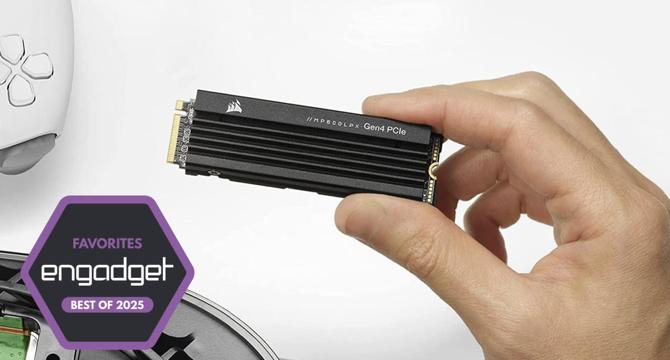Engadget
2w
21

Image Credit: Engadget
The best SSDs in 2025
- Upgrading to the best SSDs can significantly improve computer performance, offering faster boot times and file loading speed.
- Choosing the right SSD involves considering factors like PCIe Gen, SATA, NVMe, and balancing speed, capacity, and price.
- SATA SSDs are cost-effective and easy to install, suitable for older PC builds, while NVMe SSDs offer higher speeds but require compatible hardware.
- M.2 SSDs come in SATA or PCIe connection types, with Gen3 models offering speeds up to 3,000MB/s and Gen4 providing even faster performance.
- Avoid overspending on Gen5 SSDs as few applications can utilize their speeds effectively, and they may have heat-related issues.
- Consider factors like drive size compatibility and performance benchmarks rather than just focusing on theoretical speeds when selecting an SSD.
- For external SSDs, connections like USB 3.2 Gen 2 or Thunderbolt are crucial, along with features like water/dust proofing and hardware encryption.
- Upgrading console storage, particularly for Xbox Series X|S and PS5, involves specific recommendations such as Seagate and Western Digital models.
- Choosing the right SSD size depends on your storage needs, with 1TB being a good starting point, especially for gamers with large game libraries.
- While SSDs are generally faster and more efficient, HDDs can be a budget-friendly option for maximum storage capacity.
- The size of an SSD does not directly correlate with speed; read/write speeds listed in the specs provide a better indicator of performance.
Read Full Article
1 Like
For uninterrupted reading, download the app